Engineering for Health
Welcome to the Institute of Biomedical Engineering (IBT) at Karlsruhe Institute of Technology (KIT). For more than 60 years we have been active in research and teaching in the field of biomedical engineering.
In interdisciplinary projects together with medical doctors and medical industry, we investigate new technical systems that help to diagnose diseases earlier and more accurately as well as systems that make therapies more successful.
The main focus of the research program of Prof. Dr. Werner Nahm's group is optical systems in medicine and life sciences. Current projects are focussing on surgical visualization and optical diagnosis [more].
The group of PD Dr. Axel Loewe develops computational models of the heart and applies them to cardiological problems. We focus on cardiac electrophysiology and elastomechanics to contribute to answer clinical questions such as the genesis of e.g. cardiac arrhythmias and appropriate treatment strategies. Signal processing of cardiac signals (ECG and electrograms), machine learning, and artificial intelligence are further focus fields [more].
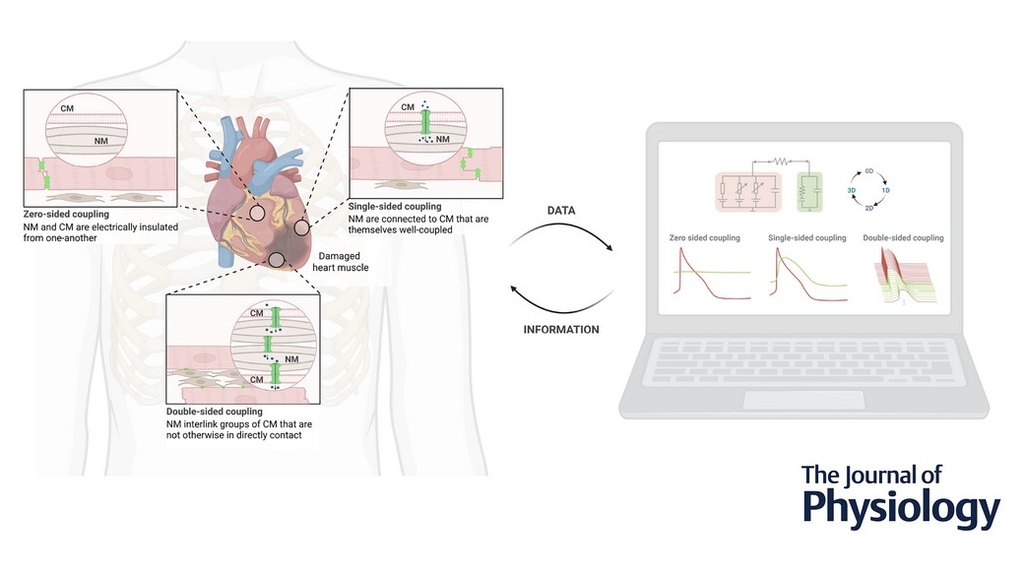
A new review article published in The Journal of Physiology explores how non-myocyte cells like fibroblasts and macrophages influence cardiac electrical activity through electrotonic coupling with cardiomyocytes. The study highlights the growing role of computational models in understanding these complex cell–cell interactions across scales, from single cells to the whole heart. This work provides a timely framework for future research into the electrophysiological impact of cardiac heterocellular coupling.
More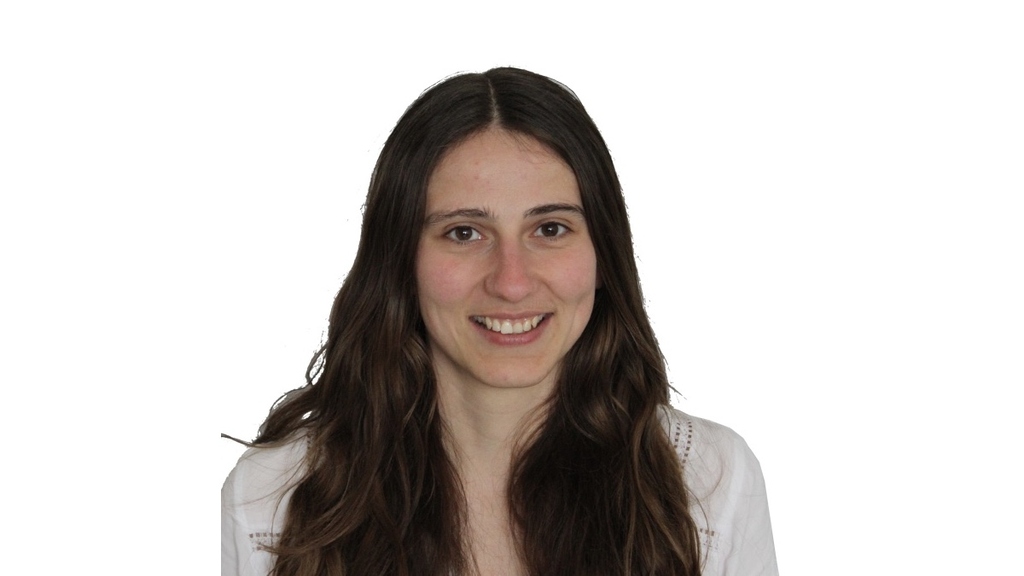
Jule Bender is working on cohort modeling of the human atria for in silico trials.
More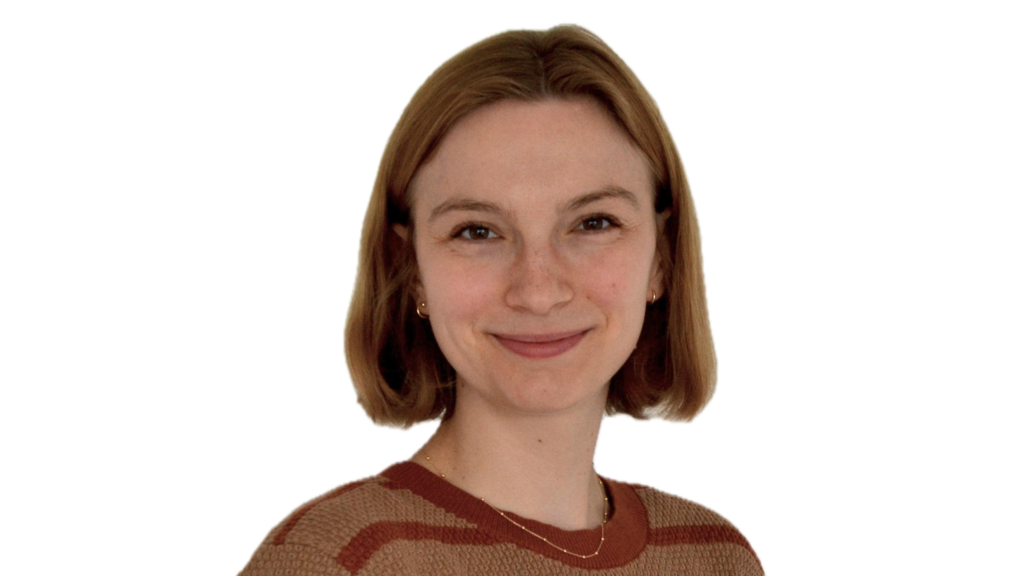
Carola Kruthoff is working on the creation and validation of biomechanical twin modeling to unravel the hypertrophic phenotype.
More
Our group recently attended the Helmholtz AI Conference 2025 in Karlsruhe. It was a highly insightful event, emphasizing critical advancements in AI for science, including foundational models, agentic AI, and energy consumption. Silvia and Julian presented their research via posters (PSII-43 and PSII-46), sparking valuable discussions. This conference offered a crucial opportunity to engage with the AI community and gather new perspectives for our work.
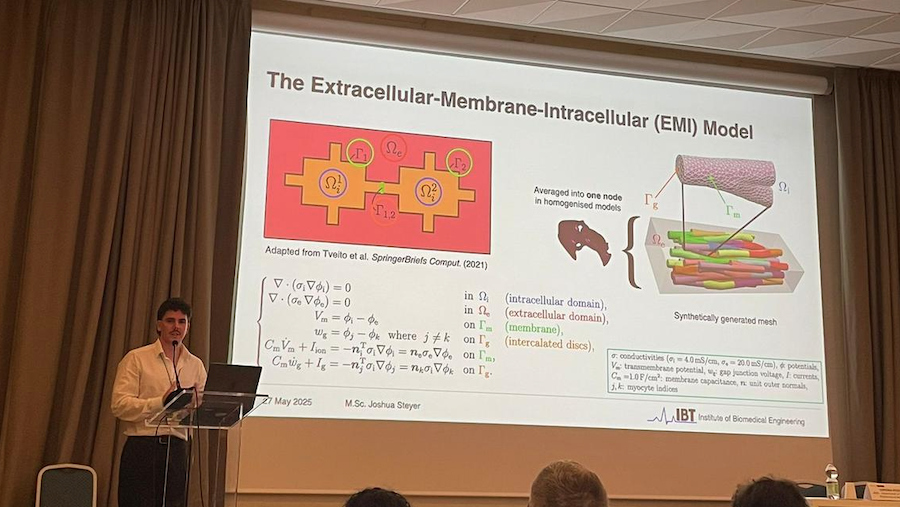
From 25 to 28 May, the Coupled Problems conference took place in Villasimius, Sardinia. Our institute was represented there by Joshua, who presented a convergence analysis of spatial discretisation for meshes with explicitly represented cardiac cells. The aim was to reduce simulation runtimes based on the Extracellular-Membrane-Intracellular (EMI) model by deliberately coarsening the mesh resolution – without compromising the significance of the results.
More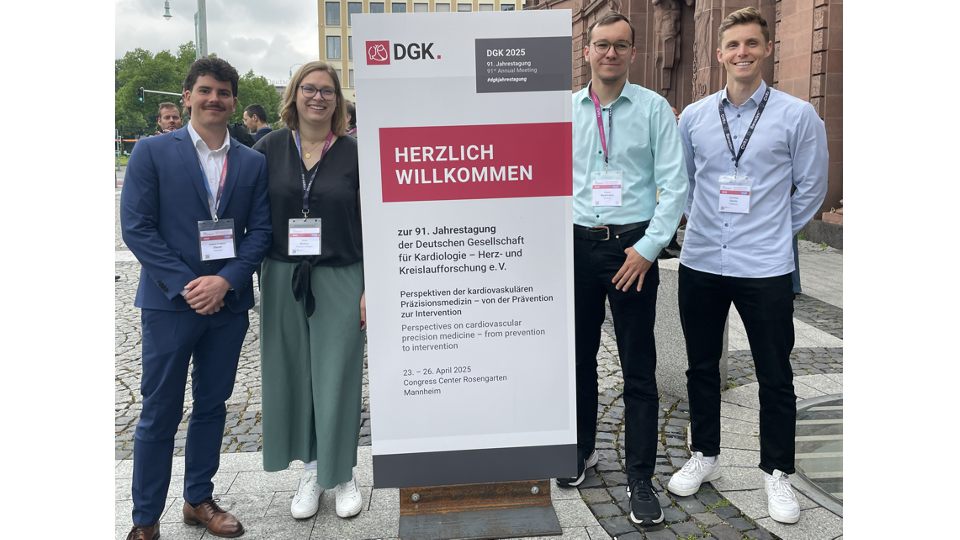
From April 23–26, the 91st Annual Meeting of the German Society of Cardiology (DGK) took place in Mannheim. Joshua and Silvia presented posters on their latest research (pacing frequency dependence of cardiac excitation conduction via fibroblasts and non-invasive atrial cardiomyopathy diagnosis), while Christian gave a talk on the automatic division of bi-atrial geometries. Pascal and Axel also attended, connecting with the cardiology research community.
